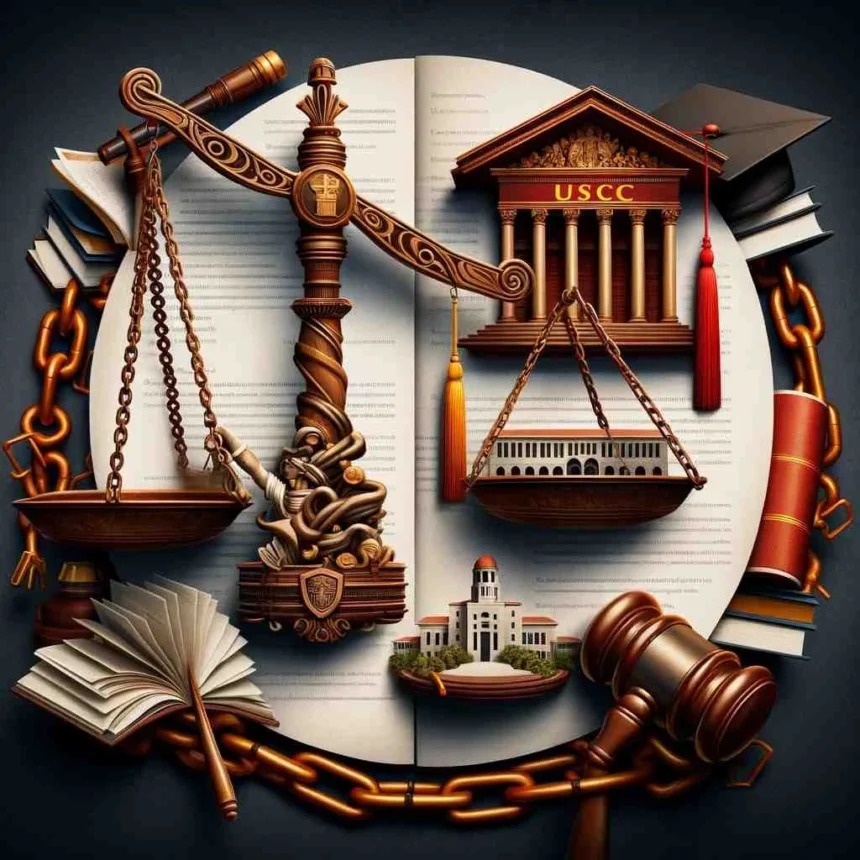Introduction
The instructional global isn’t any stranger to controversies, but few were as impactful as the lawsuit involving C.W. Park and the University of Southern California (USC). This criminal conflict, which has garnered good-sized attention, serves as a stark reminder of the complicated dynamics within academia. In this text, we can delve deep into the C.W. Park USC lawsuit, exploring its origins, key activities, and the profound implications it has had on the academic network.
Who’s C.W. Park?
Background and educational profession
C.W. Park is a prominent discernment within the area of advertising, recognized for his widespread studies and contributions to the academic world. With a career spanning many years, Park has held numerous prestigious positions, including serving as a college member at USC’s Marshall College of Commercial Enterprise. His paintings have been instrumental in shaping modern marketing theories, making him a respected authority on the subject.
Contributions to advertising and Academia
Park’s contributions to academia are bigger beyond his teaching roles. He has authored numerous courses, supplied at global conferences, and influenced a generation of advertising experts. His paintings in emblem management and client conduct are particularly noteworthy, organizing him as an idea leader in these regions.
The Origins of the Lawsuit
Preliminary Conflicts Main to the Lawsuit
The lawsuit between C.W. Park and USC did now not emerge in a single day. It became the culmination of a series of conflicts and disagreements that were brewing for some time. those conflicts commonly revolved around troubles of instructional freedom, highbrow property rights, and professional ethics, which ultimately caused a legal disagreement.
Key events involved
Other than C.W. Park and USC, numerous different parties had been concerned with the lawsuit. This covered fellow school individuals, college directors, and outside professionals who had been known to offer their insights at some stage in the lawsuits. The involvement of those events delivered layers of complexity to the case.
Info of the Lawsuit
Major Allegations against USC
C.W. Park’s lawsuit against USC focused on allegations of wrongful termination, breach of settlement, and violation of educational freedom. Park claimed that the college had unjustly brushed off him, infringing upon his rights as a tenured professor. He additionally accused USC of trying to suppress his research, which he believed turned into critical of the group.
C.W. Park’s Claims and proof
In his lawsuit, Park presented quite several evidence to help his claims. This protected emails, inner communications, and memories from colleagues who corroborated his model of activities. Park argued that his dismissal turned into not only a contravention of his contractual rights but also an assault on instructional freedom, a middle precept in better education.
USC’s Protection and Counterarguments
USC, on the other hand, mounted a strong defense against Park’s allegations. The college argued that Park’s termination became justified based on performance opinions and that his claims had been without merit. USC additionally contended that Park’s research had not been suppressed and that the college had acted within its rights as an organization.
The Felony Conflict
Timeline of the Court Docket Complaints
The criminal battle between C.W. Park and USC turned into lengthy and drawn-out, with each facet offering substantial proof and arguments. The case went via several stages, such as initial hearings, discovery, and trial. every stage of the complaints added new trends that stimulated the direction of the lawsuit.
Principal Turning Factors in the Case
There were numerous principal turning factors within the lawsuit, such as the testimony of key witnesses, the creation of recent proof, and rulings on motions by using the courtroom. these moments were vital in shaping the final results of the case, as they both bolstered or weakened the positions of the events worried.
The role of Expert Tales
Professional tales played a widespread role in the lawsuit, with both facets calling upon lecturers and legal professionals to offer their insights. those professionals provided their opinions on problems together with instructional freedom, employment law, and the ethical obligations of universities, adding intensity to the arguments presented in court.
Effect on the Educational Community
Reactions from the instructional network
The instructional community closely accompanied the C.W. Park USC lawsuit, with many scholars expressing issues over the results of the case. A few regarded it as a chance for academic freedom, whilst others saw it as a necessary take look at the electricity of universities. The case sparked debates on the rights of tenured professors and the duties of instructional institutions.
How the Case Stimulated Academic Regulations and Practices
The outcome of the lawsuit had a long-lasting impact on academic guidelines and practices. Universities across the US commenced to re-evaluate their policies on tenure, highbrow belongings, and academic freedom, with some institutions imposing changes to save you from similar disputes within the destiny. The case additionally brought about accelerated scrutiny of the way universities manage conflicts with school participants.
Conclusion
The C.W. Park USC lawsuit changed into a pivotal second in the educational international, elevating essential questions on the rights of college contributors and the duties of universities. while the criminal battle has ended, its impact is still felt across the instructional network. The case serves as a reminder of the sensitive balance between educational freedom and institutional authority, and the significance of resolving disputes in a manner that upholds the integrity of better schooling.
FAQs
What turned into the principal difficulty in the C.W. Park USC lawsuit?
The primary trouble in the lawsuit turned into C.W. Park’s allegations of wrongful termination and violation of instructional freedom through USC, which he claimed had been unjust and infringed upon his rights as a tenured professor.
How did the lawsuit impact educational establishments?
The lawsuit brought on educational establishments to re-compare their rules on tenure, educational freedom, and coping with school disputes, mainly to adjustments in practices to prevent comparable conflicts in the future.
